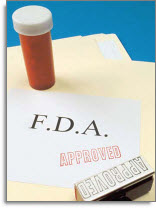Are low-priced generic medications as safe and effective as their brand-name counterparts? This is the question most often asked of me in seminars or via e-mail, and my answer is always the same: It largely depends on whom you ask, comparative studies, biases, and personal experience. All four of these issues figure prominently into determining the answer to this question. Let’s assess these four, one at a time.
Whom you ask: On one hand, brand-name drug manufacturers will obviously claim that their medications are better than generics. After all, brand-name drugs are subject to rigorous FDA clinical trials and are therefore tested more thoroughly on patients than generics, and if FDA approved, reap price benefits and patent protection for up to 20 years, in some instances. Brand-name drug prices are a reflection of the steep research and development expenditures associated with getting the drug to market, so the companies say.
On the other hand, the manufacturers of generic medicines will say their products are every bit as effective as their brand-name counterparts. This is because the FDA requires generics to be “bioequivalent.” This means that they must contain the same active ingredients as brand, and when taken by patients, must produce similar results. Therefore, one should expect a generic to be as safe and effective as a brand medication.
Comparative studies: In a recent study published in the Journal of the American Medical Association, researchers compared generic and brand-name drugs for the treatment of heart and artery disease. The study included beta-blockers, diuretics, statins (for high LDL cholesterol) and warfarin (a blood thinner) – some of the most commonly prescribed medications worldwide. Thirty eight of the studies were randomized controlled trials – indicative of high reliability. In these studies, 36 of 38 found no real difference between generic and brand.
 In spite of the above study, some physicians are concerned because the bioequivalence studies that the FDA predicates its decisions upon aren’t made public, so doctors have no way of knowing when the FDA has found a difference and how telling the difference is. Nor can they find out about differences in fillers and other additives, which might change the rates of release. So it comes as no surprise that only 12 of 43 medical journal commentaries on the subject of generic vs. brand encouraged the use of generics.
In spite of the above study, some physicians are concerned because the bioequivalence studies that the FDA predicates its decisions upon aren’t made public, so doctors have no way of knowing when the FDA has found a difference and how telling the difference is. Nor can they find out about differences in fillers and other additives, which might change the rates of release. So it comes as no surprise that only 12 of 43 medical journal commentaries on the subject of generic vs. brand encouraged the use of generics.
Biases: Biases tend to be influenced by our belief systems. They’re not right or wrong, good or bad, and they exist in practically every area of our lives. Medication is no exception. If you’re the CEO of a pharmaceutical company, you may very well be biased in favor of brand-name drugs. On the other hand, if you’re on a fixed income and have encountered no ill effects from generics, it is likely you will favor them.
Personal Experience: Previous experiences practically always shape future choices and decisions. For example, if a patient were to notice no difference (price excluded) when switching from a brand name to a generic drug, they’d likely think that generics can be readily substituted for brand products. But if the same patient experienced the emergence of different side effects or diminished effectiveness with a generic, they might be more skeptical of the switch.
Physician views on generic medications are often closely associated with their patients’ experiences. In today’s medical environment, prescribing habits have changed. Most physicians have come to accept or have been forced into generic substitution by the rigorous, cost-conscious practices of third party payers. If a patient complains though, doctors will usually not hesitate to change a prescription back to brand name.
The bottom line is: In spite of whom you ask, comparative studies, biases and personal experience, the FDA is satisfied with the performance of generic drugs, psychotropic medications included. The question is: Are we and our clients satisfied?
————————————————————
Joe Wegmann is a licensed clinical social worker and a clinical pharmacist with over 30 years of experience in counseling and medication treatment of depression and anxiety. Joe’s new book, Psychopharmacology: Straight Talk on Mental Health Medications is available at www.pesi.com. To learn more about Joe’s programs or to contribute a question for Joe to answer in a future article, visit his website at www.thepharmatherapist.com, or e-mail him at joe@thepharmatherapist.com.